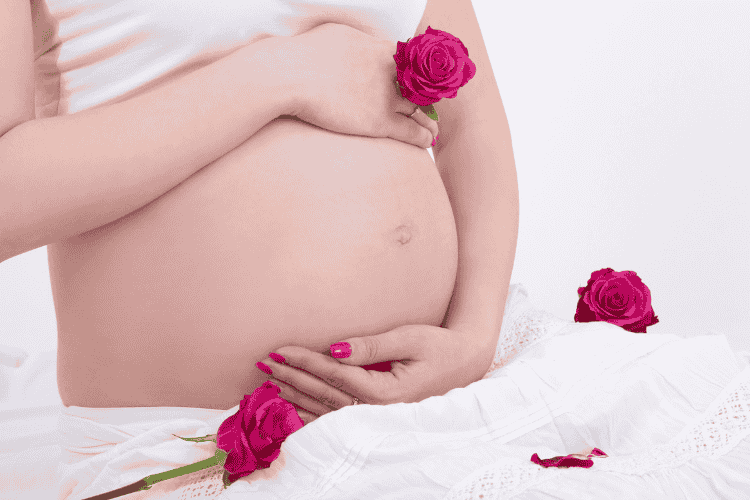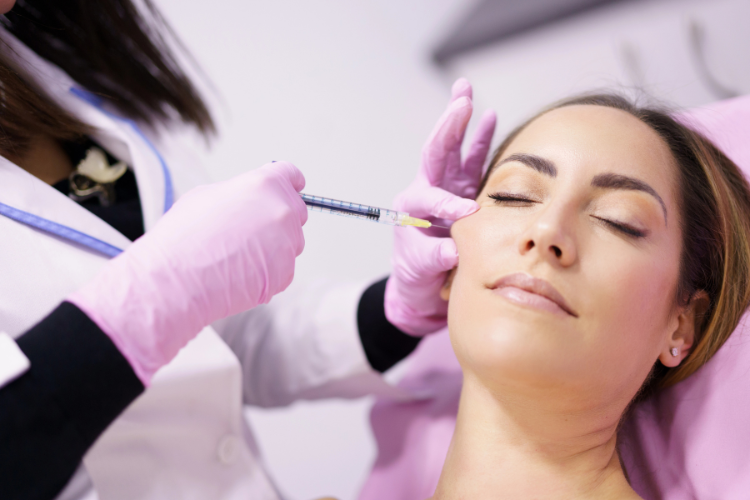Can You Do Laser Hair Removal While Pregnant?
Laser hair removal has become an integral part of modern, long-term beauty and self-care routines. Offering a highly effective and lasting solution for unwanted hair reduction, it frees you up from the daily grind of shaving or the discomfort of waxing.
Yet, for women embarking on the incredible journey of pregnancy, questions naturally arise about the safety of continuing or starting any cosmetic treatment during this precious time.
Pregnancy is a period of profound physiological change, largely driven by fluctuating hormones. These hormonal shifts, while essential for fetal development, can also lead to unexpected bodily changes like unwanted hair growth showing up in surprising areas.
Ultimately, the question is: Is it safe to undergo laser hair removal while pregnant?
Read on as we give you expert advice on laser treatments for pregnant women and help guide you toward safe decisions for you and your baby.
How Laser Hair Removal Works
Laser hair removal uses concentrated beams of light to target pigment in individual hair follicles. The light energy gets absorbed by the pigment, converting into heat, which then damages the follicle to the point that it can no longer regrow hair.
Because hair grows in cycles and the laser is most effective during the active growth phase, multiple sessions are required to achieve significant, long-term hair reduction. A series of 6-8 sessions, usually spaced several weeks apart, is recommended for best results.
For non-pregnant individuals, when performed by a qualified professional using FDA-approved devices, laser hair removal is generally considered a safe, effective, and well-tolerated procedure.
Safety Concerns During Pregnancy
The primary reason for caution regarding laser hair removal during pregnancy stems from a significant research gap. Clinical studies on laser hair removal in pregnant patients are lacking.
For ethical reasons, pregnant women are typically excluded from clinical trials for cosmetic procedures, making it impossible to definitively state that laser hair removal is 100% safe for them or their unborn child.
Without this kind of data, providers operate under a principle of “better to be safe than sorry.” While there’s no concrete evidence of direct harm to the fetus from the light energy or heat generated by laser hair removal, the uncertainty alone is enough to warrant extreme caution.
Given these unknowns, the medical community and reputable med spas tend to err on the side of extreme caution. Concerns revolve around:
- Heat Absorption: Could the heat generated by the laser, especially in sensitive areas like the abdomen or bikini line, affect the fetus? While the laser energy targets superficial skin layers, this remains an unproven concern.
- Light Energy Exposure: Although the light penetrates only a few millimeters into the skin, questions about the long-term effects of any form of light energy on fetal development persist, even if theoretical.
- Maternal Discomfort: Pregnancy can make the skin more sensitive, potentially increasing discomfort or pain during the procedure.
Why Most Providers Advise Against It
As mentioned, the absence of long-term safety data for both mother and baby is the overriding factor. No responsible provider wants to put an expectant mother or her child at any potential, even theoretical, risk.
Plus, hormonal surges during pregnancy can make a woman’s skin significantly more sensitive and reactive. This heightened sensitivity means a higher risk of adverse effects from laser treatments, including burns and hyperpigmentation.
The very hormones that cause increased hair growth during pregnancy can also make laser hair removal less effective. The laser targets pigment, and fluctuating hormones can influence hair color, texture, and growth cycles in unpredictable ways. This means that even if a treatment were deemed safe, the results might be suboptimal or temporary due to the body’s altered state.
Due to these concerns, many reputable med spas and clinics have strict policies against performing laser hair removal on pregnant clients.
Safe Alternatives During Pregnancy
While laser hair removal is off the table, expectant mothers don’t have to live with unwanted hair. There are several safe hair removal during pregnancy methods to keep you feeling comfortable and confident, like;
- Shaving
- Trimming
- Threading
- Waxing
Products like chemical depilatories or bleaching creams containing strong chemicals can be absorbed through the skin, and their safety during pregnancy is not well-established. It’s best to avoid them or, if you’re considering them, consult your doctor first.
Regardless of your chosen hair removal method, support your skin with gentle, hydrating products to prevent irritation, especially when your skin is more sensitive.
When to Resume Laser Hair Removal
The general consensus among medical professionals and aesthetic providers is to wait until after delivery and breastfeeding before resuming or starting laser hair removal treatments. Here’s why:
Hormonal Stabilization
After birth, your body needs time for hormones to return to normal levels. This process can take a few months, and until your hormones stabilize, your hair growth patterns may still be erratic, making laser treatments less predictable.
Breastfeeding Considerations
While there’s no direct evidence that laser energy is harmful during breastfeeding, many providers prefer to avoid any potential, even theoretical, exposure to the baby through breast milk. Waiting until breastfeeding has concluded is the safest approach.
Postpartum Consultation
Once you’ve delivered and finished breastfeeding, it’s advisable to schedule a new consultation with your laser hair removal provider. Your hair growth patterns might have changed significantly due to pregnancy, requiring an adjustment to your treatment plan.
Managing Expectations for Postpartum Hair Growth
It’s essential for expectant mothers to understand that pregnancy-related hair growth, also known as hirsutism, is often temporary and typically resolves naturally as hormone levels balance out during the postpartum period.
Many women find that excess hair growth diminishes on its own within a few months after delivery.
The postpartum period, therefore, is an ideal time to restart or begin a laser hair removal series. By planning ahead, you can safely schedule your consultations and prepare to start treatments when it’s genuinely safe and most effective.
This allows you to look forward to achieving the smooth, hair-free results you desire without any undue worry during your pregnancy.
Expert Advice on Laser Treatments in Lakewood Ranch
At the end of the day, a prudent med spa with licensed, caring professionals will not recommend laser hair removal treatments for pregnant women.
Given the lack of definitive safety data and the increased skin sensitivity and hormonal fluctuations during pregnancy, it is wisest to prioritize the health and safety of both mother and baby.
Focus on safe, temporary hair removal solutions during your pregnancy, and once you’ve delivered and finished breastfeeding, you can confidently revisit permanent options like laser hair removal.
Book a consultation with Elite Medical Spa Lakewood Ranch after your pregnancy to get a customized treatment plan for smoother skin for life.




